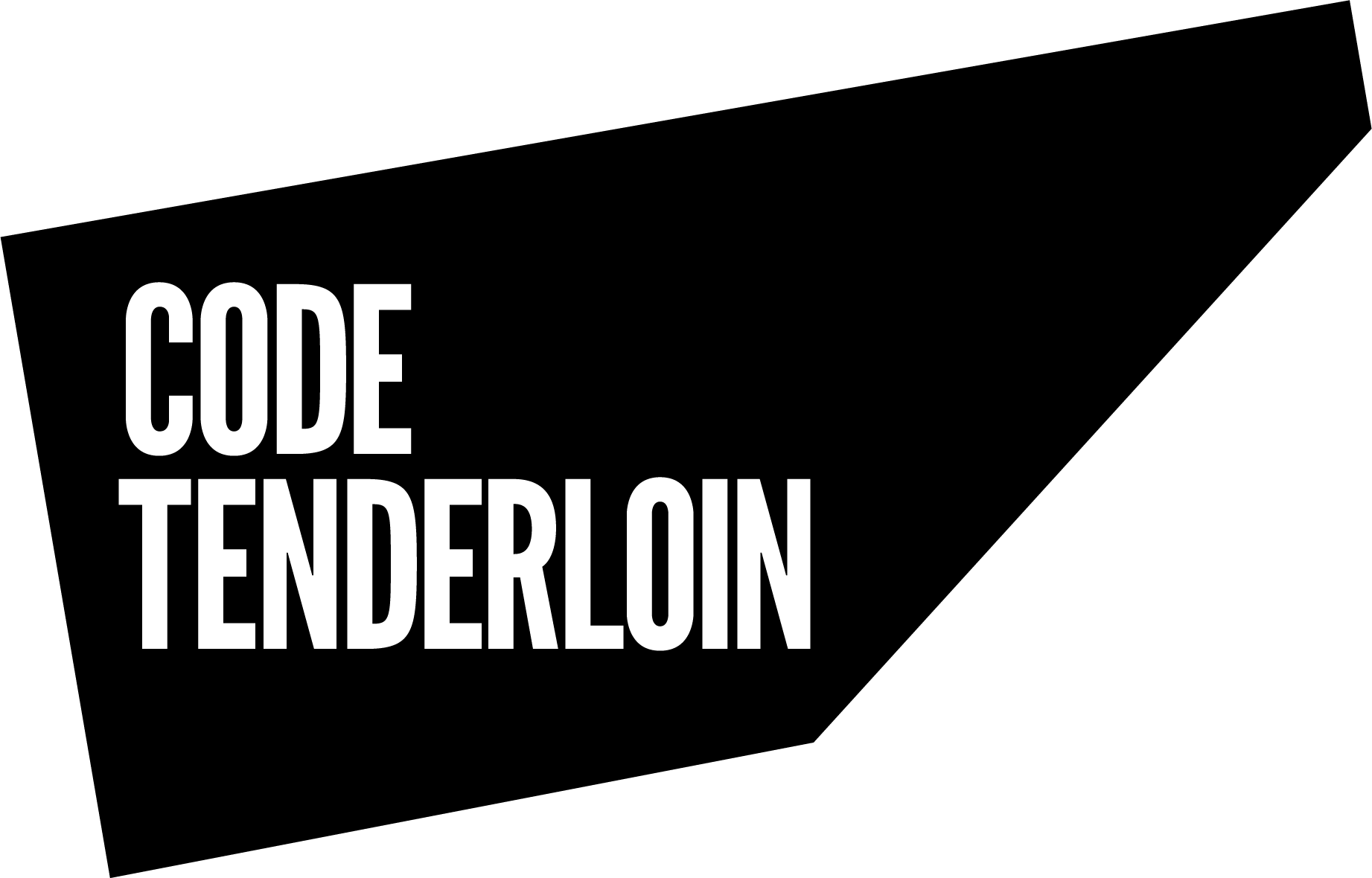Our COVID-19 Response Work
How Code Tenderloin mobilized to support the Tenderloin community during COVID-19
At Code Tenderloin we offer free job readiness, workforce development, and coding courses; our overall mission is to help students get stable jobs. We’re located in the Tenderloin neighborhood of San Francisco and our students include many that are homeless or housing insecure, recently re-entering society from incarceration, or older and trying to get back into the workforce after long employment gaps.
When COVID-19 caused the city-wide shutdown in March 2020, we had to suddenly shut down all of our in-person courses, which were all held at various locations in the Tenderloin and at LinkedIn’s downtown office, and move them online. We saw the terrible impact of COVID-19 on our community almost immediately when the shutdown commenced. People were getting laid off or fired in record numbers, and for many of our students this meant they were quickly unable to pay for basic needs. Many soup kitchens, food banks, shelters, and clinics across San Francisco shut down, and the homeless population of the Tenderloin increased by the thousands since this is where a few remaining organizations were still providing services.
Tent encampments sprung up along the sidewalks of the Tenderloin as well as next to notable public areas such the Main Public Library, Asian Arts Museum, and UC Hasting Law School. We had an overwhelming number of people requesting immediate assistance with housing, food, and supplies.
Within days of the city shutdown, our founder Del Seymour worked with staff to drastically adapt the kind of work we were doing so we could support these new and dire community needs. We expanded our Calming Corners program, where we set up pop-up stands around the Tenderloin to distribute supplies such as hygiene kits, masks, and food as well as resources such as referrals for jobs, housing and medical care. We hired a case manager, started donation drives so we could continue to secure supplies to give out, and overall greatly increased our frontline outreach work. Our Executive Director Donna Hilliard and Program Manager Elgin Rose spoke at numerous city planning meetings to petition the city to open up more beds at shelters and hotel rooms. Their personal backgrounds of homelessness and marginalization enabled them to be powerful advocates for our community. Our offices at 55 Taylor Street have become a resource center where the community knows they can come to for help and supplies.
At the start of May, we partnered with the Downtown Streets Team to manage a team of street ambassadors that went out into tent encampments to provide hygiene kits, information packets, and vital referral services for people living on the streets. We helped get many off the streets and into housing and even hired local residents to be ambassadors and case managers.
Since May, we’ve also relaunched all of our education and workforce development programs virtually. They’re still going strong in the online-only format, and our cohorts of students in technical education have grown in size since going virtual! Since libraries and other public sources of computer use and WiFi have been closed, we put extra efforts into providing students laptops, WiFi hotspots, and basic computer literacy training.
We’ve been successfully continuing our work supporting the community with basic needs and frontline outreach, as well as virtually held courses, for almost a year now. Furthermore, we’ve been fortunate enough to receive a 1.6 million dollar donation from Jack Dorsey’s #StartSmall initiative to help continue our COVID response work. We’re really grateful for how flexible and driven our staff and volunteers have been, as it’s been crucial in allowing us to adapt to totally new types of service and formats of existing programs.



